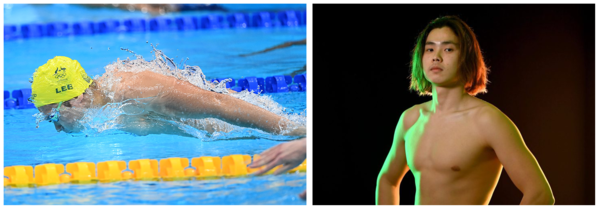Competing at the Olympic Games is the pinnacle of athletic ability — an opportunity for pride and patriotism while representing one’s home nation. One of the athletes talented enough to compete at the recent Tokyo 2020 Olympic Games was an Australian-born Korean swimmer, Se-Bom Lee. He represented Australia in the Swimming, competing in the 400m Individual Medley and finishing 16th overall. He was the only athlete of Korean descent to not represent Korea at these Olympic Games, not conforming to Minjok, the Korean ethnic nationalism that is so prevalent today. When asked about the choice to represent either Australia or Korea, he stated that “It was a pretty easy choice — I’m not sure if it’s even possible for me to represent Korea.” However, this is just the beginning of him breaking Korean stereotypes.

Se-Bom’s swimming career had humble beginnings, he himself stating during his interview that “It was just a family thing. My two older sisters swam, and my mum made me tag along with them. I think I started at around 4, and started squads at around 6.” Ever since then, he’s continued training and competing in the sport that he loves and turned it into a career.
During the early stages of his career, he was fortunate enough to experience both Australian and Korean coaching styles for swimming through different clubs and training regimes. He recalled that he found the Korean style to be more intensive, which is often the stereotype for Asian sports culture. A big part of that was his parents, who raised him with a more traditional Korean mindset in terms of workload intensity. However, he stated that “they kind of [took a step] back during high school and let me do my thing,” recognizing the freedom he had in choosing which disciplines to prioritize.
The high academic requirements of his education in Australia regardless of his ability as an athlete allowed him to be the well-rounded student athlete he is now. When describing his secondary schooling, he remarked, “I think it did help me, having the [academics and the swimming] separate and not always having a life about swimming.” He recognized the limits of his swimming career, understanding that it isn’t a life-long career in terms of being an athlete at the highest level. “Education always helps you set up your life after your sports career. I think it’s been really good having a bit of both and I’m really excited to have a life after swimming as well.” His forward thinking about his career after swimming sets him apart from many other young athletes of Korean descent, as does his ability to manage both his current swimming career as well as his future goals.
This schooling allowed Se-Bom to develop a lifestyle balance very uncommon for many Korean athletes. He currently studies a Bachelor of Medical Science full-time at the University of Technology, Sydney (UTS). When asked how he manages this, he credited it largely to the ability to find what is specifically best for himself. “I guess I’ve kind of been really laid back and just did what I enjoyed… It’s really finding time management and doing what’s best for you, not what’s best for everyone else.” His recommendation to focus on what you enjoy and understand that what works for you may not for other people is something not very well accepted in modern Korean culture, where comparison and competition is rife in all parts of society. He also strongly emphasized the importance of a support network, in both academic and sporting disciplines. “You’re going to have to sit down with your course coordinators or academic supervisors and your coach to help organize and find support; it makes managing the workload much easier.”
Se-Bom recognizes that there are many students who have clashes in their priorities, often with academic and sports life, like he did. In the event where parents or coaches are pressuring you to make a choice in one way or another, he recommended making a future plan that you could show them, with clear short and long-term goals outlined. In this, he emphasized the necessity of making this plan around what you enjoy whilst recognizing the longevity (or lack thereof) of the career in question.
Hopefully with more athletes with Se-Bom’s mentality coming through in the younger Korean generations, there will be a cultural shift towards breaking the toxic, single-minded aspects of the older Korean traditions.
For the full interiew, please click this link.

